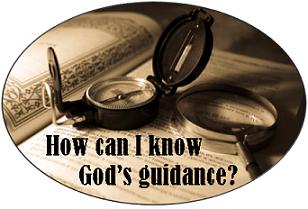Making the Simple Wise
Making the Simple Wise
For the word of God is living and powerful, and sharper than any two-edged sword, piercing even to the division of soul and spirit, and of joints and marrow and is a discerner of the thoughts and intents of the heart.
Hebrews 4:12
People often ask, “How can I know God’s guidance?” The obvious answer is that God has already spoken, and his words are written for all generations to use. The Bible, writes the Apostle Paul, “is able to make us wise unto salvation.” So let’s think about the Bible.
Origin⤒🔗
The prophets declared, “Thus says the Lord.” And their words could be tested to see if the claim was true. Paul referred to scripture as “breathed out by God” (“inspired”). And Simon Peter spoke of God’s prophets being “carried along” by the Holy Spirit. When Jesus was on earth he treated it as the very word of God.
Functions←⤒🔗

The Bible works in various ways. Paul writes, “It is profitable for doctrine, reproof, correction, and instruction in righteousness” (2 Timothy 3:16, 17).
“Doctrine” means teaching, or information. The Bible provides insights about God and ourselves – things we would never have discovered otherwise. It also “reproves”, i.e. it exposes sin; but it does more – it gives us a different attitude towards our own wrongdoing.
And it “corrects” – it puts right those things in our life that were wrong. That implies that we respond to its teaching. Otherwise we would never be trained in the life of God. The word translated “instruction” reminds us of a child being trained for adult life.
Purpose←⤒🔗
Its purpose is to “make the man of God complete, equipped for every good work.” What a change, when an enemy of God becomes a man of God! And the Bible does that.
But the newborn Christian is like an empty room – part of the house but not fulfilling its potential. It needs to be “furnished”, then it is useful. And the Christian needs to grow in grace so that he/she may serve their God and Saviour with good works.
The Bible and Us←⤒🔗
If we want God’s guidance we must remember that it comes in the context of a personal relationship. The Bible is God’s speech. So it is not a book that we can control – it is the living God speaking to us today.
A relationship can change over time. We can hardly expect to hear God’s voice if we consistently ignore him, disobey him, or prefer our own ideas to his. On the other hand, Jesus promised that those who love God and obey him will find him drawing close to them (John 14:23).
We don’t have a right to pick and choose which parts of God’s guidance we will accept.

The Bible is authoritative. Jesus accepted its authority over himself. For example, when he was arrested he could have prayed for angelic help; but he was under an obligation to fulfil the scriptures. Why did Jesus not find that a burden? Because of his love to God who had spoken. And if we have the love of God we will not find his commands burdensome (1 John 5:3).
The Bible is sufficient to guide us in all matters of faith and conduct. It was enough for Jesus. At the great crises of his life he relied totally on its words. At his wilderness temptations, in controversy and facing the cross he relied on nothing more (or less) than God’s word written.
We may be tempted to add to the Bible by relying on other supposed authorities (individual conscience or the church). That dishonours God its author, and Jesus our Lord. Or we may detract from it by rejecting parts that criticise us or make demands on us.
In a sermon he preached thirty years ago Rev Malcolm MacSween quoted the Catechism, “The Word of God, which is contained in the scriptures of the Old and New Testaments, is the only rule to direct us how we may glorify and enjoy him.” He paused, then added, “Some people think they are wiser than scripture.”

Add new comment